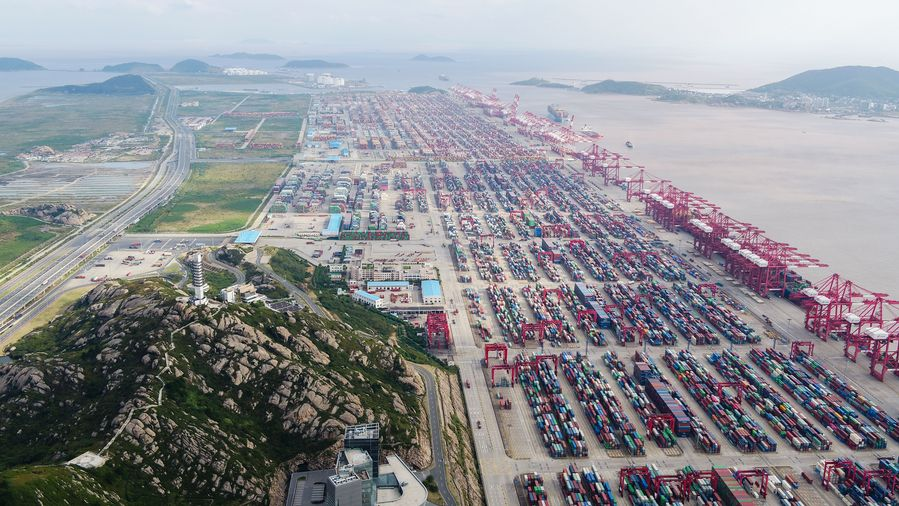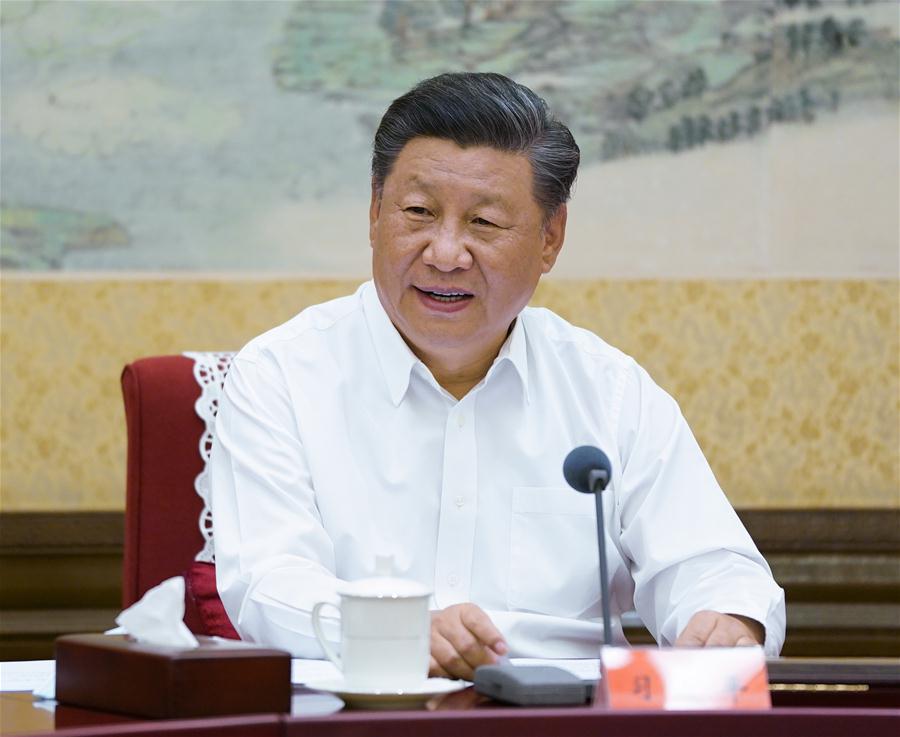
The Yangshan Deep Water Port of east China's Shanghai, October 16, 2019. /Xinhua
The Yangshan Deep Water Port of east China's Shanghai, October 16, 2019. /Xinhua
Editor's Note: Chen Jiahe is the chief investment officer at Novem Arcae Technologies. The article reflects the author's opinions, and not necessarily the views of CGTN.
The year 2020 has been a very unexpected year so far for both the Chinese economy and the global economy.
The impact of the coronavirus has been even larger than the consequence caused by the trade war between the United States and China. As the global economy becomes more turbulent, the stability of the Chinese economy is now super important to the rest of the world.
In the past four decades, the Chinese economy has become the world's second largest economy and is now holding a much more important role compared with decades ago. Data can show us the large scale of the Chinese economy today.
During the final years of World War II, the United States was an important force for the balance of the global conflict. The U.S. entrance into the Pacific and European battlefields changed the balance of the war dramatically.
At that time, the industrial production power of the United States can be roughly expressed by this number: the annual production of automobiles in the United States was around four million. It shows an approximate measurement of the industrial capacity that the U.S. possessed at that time.
If the United States was able to produce four million automobiles per year eight decades ago, how many can China produce today?
In 2019, China produced around 25 million automobiles, around six times the annual amount that the United States produced during the WWII. This number is even higher than what was produced and consumed by the American market in 2019.
As China's economy is now an essential cornerstone of the global economy, its stability is critical to the maintaining and recovery of the global economy amid the devastating impact caused by the coronavirus.
COVID-19 has caused a significant slowdown for the industries that depend heavily upon consumption and generate a lot of employment, such as the film industry, catering and restaurants, etc.
Thus the pandemic has not only reduced the GDP growth of many economies, but also has had a detrimental effect on the labor market, which can then translate into political disturbance and social pressure.

Chinese President Xi Jinping, also general secretary of the Communist Party of China Central Committee and chairman of the Central Military Commission, chairs a symposium on economic and social work in Beijing, capital of China, August 24, 2020. /Xinhua
Chinese President Xi Jinping, also general secretary of the Communist Party of China Central Committee and chairman of the Central Military Commission, chairs a symposium on economic and social work in Beijing, capital of China, August 24, 2020. /Xinhua
China has realized the crucial role it plays in the global economy.
President Xi Jinping recently held an economic conference that involved many specialists in the fields of social and economic issues. They discussed many matters at the conference, including the stable development of the Chinese economy, the importance of stimulation and construction of the domestic economy, innovation achievements that can be brought by technological improvement, etc.
At this conference, the importance of international trade and cooperation has been particularly underlined. China reiterates that international trade, cooperation, and communication are still vital to the country's economic development. Cooperation, rather than conflict, is critical to the economic benefits that the world is enjoying today.
The conference also highlighted domestic economic development and consumption as a priority for China. It is impossible for a country with a population of 1.4 trillion and an expanding middle class, where the per capita GDP just reached 10,000 U.S. dollars, to develop itself simply by relying upon the international trade.
Finally, China is also working hard to improve its social welfare system.
When we look at the world economies, we can diversify them into two categories: the welfare states and the non-welfare states. In countries of the former category, including Sweden, the UK and France, their citizens receive much better welfare with their retirement, healthcare, etc, while paying higher taxes when they are working. On the contrary, the citizens of the non-welfare states pay much lower taxes when they are working, but they also receive much fewer benefits outside of their jobs.
Currently China is clearly a welfare state. This means China has to strive to provide a better social welfare system for its citizens. The recent economic conference has put this issue in the spotlight. Once its citizens are covered well by the state welfare, China is capable of offering more stable and reliable economic support to the rest of the world.
As China is now the world's second largest economy and firmly upholds multilateral collaboration, the stability and development of the Chinese economy can show strong support to global economic welfare, social stability and employment recovery.
(If you want to contribute and have specific expertise, please contact us at opinions@cgtn.com.)